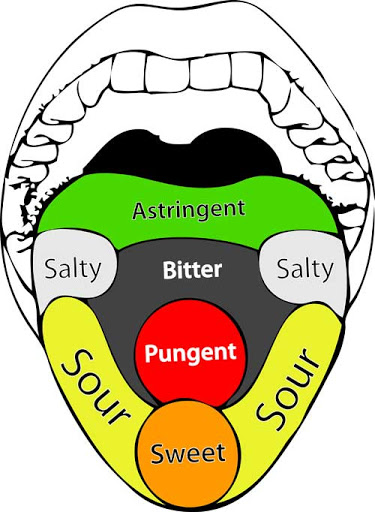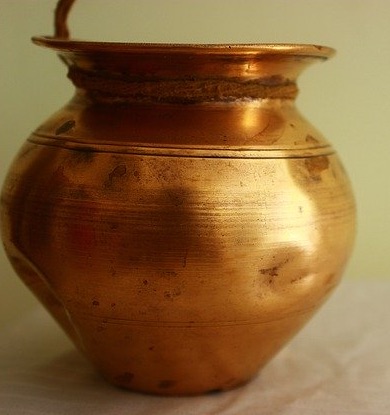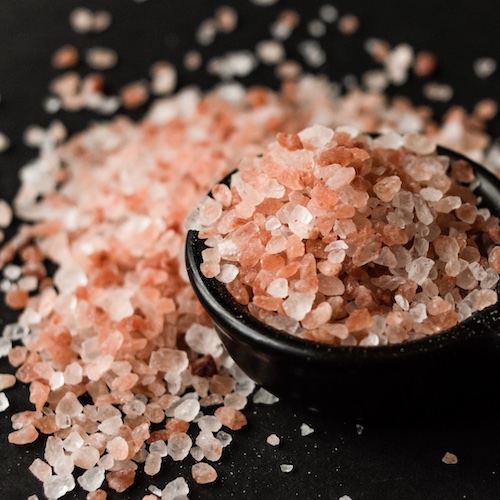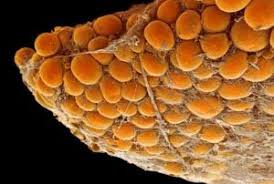The Ayurveda diet is unique for each person. It depends on body constitution, dosha ratio, age, gender, nature of physical work, times of day, and seasons. This helps to keep diseases at bay.
Related article Ayurvedic Daily Detox at Home for Weight Loss
Table of content
Ayurvedic Diet Based on Doshas
Ayurvedic Diet Based on Diseases
After food Drinks-according to ayurveda
Do’s and Don’ts in Ayurveda Diet
Ayurveda emphasizes a healthy diet to keep diseases at bay. These diets are tailor-made to each person, based on his or her constitution, dosha ratio, age, gender, nature of physical work, etc. It also depends on the times of day and seasons.
What is Ayurvedic Diet?
- Ayurveda Emphasises on Vegetarian Diet
- Herbs and Spices are a must in Ayurvedic Diet
- All 6 Tastes or 6 Rasa should be present in Ayurvedic Diet
Ayurveda insists vaidyas analyze the dietary needs of each and every individual. The importance given to diet and nutrition in the ayurveda system of medicine, cannot be underestimated. Agni or body fire metabolizes the foods consumed. Hence Agni should be optimally maintained to prevent indigestion. According to Ayurveda indigestion leads to the liberation of ama or body toxins. Hence the main aim of an Ayurvedic diet is to eat foods that are nourishing and do not cause indigestion. For Example, soybean is not recommended in Ayurveda for human consumption.
Ayurveda Emphasises on Vegetarian Diet
Dr. Mahesh Satyan says that A vegetarian diet is always preferred over a nonvegetarian diet. Ayurveda suggests that an individual’s diet should contain rich amounts of vegetables, fruits, whole grains, and foods rich in fiber as these will provide energy and help the individual maintain good health.
A good meal as suggested by ayurveda would also include colors, aromas, flavors, tastes, textures, etc that would soothe all our sense organs apart from providing our body with all the needed nutrients. Ayurveda discourages the use of animal flesh in our diet as also the consumption of coffee and alcohol.
Herbs and Spices in Ayurvedic Diet
Herbs and spices do play a vital part in all ayurveda diets and recipes. Ayurveda suggests that one consume herbs before a meal, during a meal, and after a meal. Herbs are known to increase the digestion process and help in the assimilation of food due to their ability to transport the healing and nutritive value of food to the tissues, cells, and organs. These balance agni and aid in comfortable digestion. Herbs also cleanse our body’s system of toxins and impurities and help in the process of elimination. They relieve constipation and normalize bowel movements.
Eating a lemon prior to a meal increases the appetite as also chewing fennel seeds after a meal helps in the digestive process and makes our breath fresh. Amalaki rasayanas (rasayanas made from Amla) and Triphala rasayanas are highly recommended in ayurveda as these help in digestion, assimilation, and elimination. The best way to consume spices is by consuming them after cooking.
6 Tastes or Rasa in Ayurvedic Diet
Ayurveda favors the inclusion of all the six tastes or 6 rasa: sweet (madhura rasa) , sour (amla rasa) , salty (lavana rasa) , astringent (kashaya rasa) , bitter (tikta rasa), and pungent (katu rasa) at every meal. These easy-to-digest recipes offer quick assimilation, prevent diseases, provide immunity from diseases, impart improved sleep and concentration, maintain youthfulness, and offer energy, strength, and vitality to an individual. The ayurveda system of medicine recommends suitable and unsuitable types of food for each category of body constitution. These are to be followed for a long and healthy life free from diseases. The food consumed by a person should have relevance to his body constitution.
Ayurvedic Diet Based on Doshas:
- Vata pacifying diet
- Pitta pacifying diet
- Kapha pacifying diet
Ayurveda recommends foods based on the doshas of each person and what type of food is beneficial for each body type.
Vata Dosha Pacifying foods.
Vata dosha pacifying foods include ghee, soft dairy products, wheat, rice, corn, and bananas. It is recommended that a person with vata constitution consume foods like hot cereal with ghee, soups, vegetables, cooked grains, chapattis etc. Unlike other body constitution persons, vata persons can consume spicy foods as well.
Vegetables and Fruits for vata dosha:
Asparagus, carrots, cucumber, green beans, onions, garlic, turnips, radish, sweet potatoes, etc Fruits Mangoes, melons, peaches, bananas, and all sweet fruits Grains Rice, wheat, and oats.
Pitta Pacifying Diet
For people with pitta dosha dominant constitution, milk, rice, beans, and fruits as also spices such as cumin, and coriander are recommended.
Pitta pacifying Vegetables:
There are no restrictions on the consumption of vegetables by the pitta constitution persons. They can generally consume all types of vegetables. Fruits: There are also no restrictions on the type of fruits that they consume. All fruits are generally good for them.
Kapha Pacifying Foods.
And for kapha dosha persons, foods with bitter, pungent, and astringent tastes are beneficial. Foods such as puffed rice, millets, and leafy vegetables as also spices such as ginger, turmeric, and chilli are good for kapha constitution persons.
Ayurvedic Diet Based on Diseases
Texts of Ayurveda suggest that when a person suffers from a disease, vaidyas or ayurvedic doctors have to analyze his dosha vitiations , strength of agni, extent of toxin accumulation etc and then frame diet chart which helps him to get rid of his disease.
Vegetables in the ayurvedic diet:
All vegetables are good for these people. But if some of these kapha persons suffer from diseases such as asthma, lung congestion, heart disease, obesity, etc then, it would be best to avoid sweet juicy vegetables like cucumbers, sweet potatoes, etc
Grains: Rice, wheat, millets etc are recommended. In the Ayurveda system of medicine, apart from consuming the type of food suitable for each dosha type, the seasons and the place where one lives are also taken in to consideration. Ayurveda diet, stresses the importance of consuming whole foods, eaten in as natural a state as possible. And it is also to be noted that if the digestive fire is not strong enough, then, even wholesome foods can turn into toxic matter in the body.
After food Drinks-according to ayurveda
The drinks which are consumed after food or after medications are known as “anupana” in ayurveda. These drinks help in healthy digestion of food and also enhance the therapeutic value of medications. Ayurveda acharyas describe the qualities of anupana or after food drink as
This means an ideal after food drink must have opposite properties of the food consumed and also it must be compatible with the food or medication.
List of healthy after drinks
Cold water – This should be consumed after a meal prepared with barley, wheat, curd or yogurt, honey, and wine.
Warm water – When foods are loaded with carbohydrates, starch, cream, etc, this drink is ideal.
Buttermilk – When lots of vegetables and pulses are present in food, buttermilk is an ideal after-drink.
Beer – Beer made from barley helps lean persons to gain weight.
Honey and water – Honey and water is the best after-food drink for those who want to lose weight.
Meat soup – this drink is ultimate for persons who have lost weight due to diseases and for people who have poor digestion.
Milk – This is the best after-food drink for those who are emaciated, walk long distances and sing or speak for long hours. It is like nectar for those who are recovering from diseases. Milk provides full nourishment for children and aged. Acharyas recommend the consumption of milk after sexual activities.
Do’s and Don’ts in Ayurveda Diet
Ayurveda system of medicine does not recommend foods that are frozen, canned, or refined as these dilute the food of its nutritive value. Also to be avoided are processed foods with artificial colors, flavorings, additives, or preservatives. Also, foods that are genetically altered and grown with the use of chemical fertilizers and pesticides are also not favoured in ayurveda. The best option, then, would be to consume foods that are organic, natural, and locally available. Ayurveda also stresses the importance of rotation of an individual’s diet so that one does not consume the same type of food each and every day of the week. There should always be variety in the types of food consumed as this will provide us with all the needed nutrients, increase the digestion process as also it will increase one’s liking for every type of food.
Food Intake -Do’s and Don’ts.
Certain guidelines have been suggested in Ayurveda regarding the dietary habits that should help an individual maintain good health, nourish the body, and balance the doshas.
– One should always consume cooked foods and avoid raw foods.
– Fruits and salad vegetables, however, can be eaten raw.
– The food consumed should neither be too hot nor too cold.
– Curds are recommended after a heavy meal as it helps digestion.
– One should always chew one’s food properly.
– One should wash the hands, feet, and face before every meal.
– Food should be consumed only if the bowel movements are proper.
– There should always be a gap of three hours between every meal.
– It is advisable to have a heavy lunch; however, a light dinner is recommended.
– One should always limit the intake of food to two-thirds of the stomach capacity.
The following food combinations are best avoided:
– Never consume milk and meat
– Starchy foods such as potatoes and fruits should not be taken together.
Note:
It is to be noted that this information is purely for educational purposes and is not intended to diagnose, treat, cure or prevent any disease. Please consult your ayurveda physician for all your specific dietary needs.
Ayurvedic Foods Used in Ayurvedic Diet
Here is the list of ayurvedic foods that are used in the ayurvedic diet
- Almonds
- Ash Gourd or Kushmanda (Benincasa Hispida)
- Banana ಬಾಳೆಹಣ್ಣು
- Blackgram or Urad Dal
- Cardamom
- Coconut
- Cucumber
- Dates or Khajur ಖರ್ಜೂರ
- Figs or anjeer
- Fox nut or makhana
- Garlic ಬೆಳ್ಳುಳ್ಳಿ
- Gotu Kola or Centella Asiatica
- Grapes
- Horse Gram
- Jackfruit
- Jaggery
- Jeera or Cumin Seeds
- Karela (Bitter Melon)
- Lemon or Jambeera
- Milk
- Moringa or Drumsticks
- Okra or Bhendi or Ladyfinger
- Onion
- Peanut
- Pistachios
- Raisins or Dry Grapes or Kishmish
- Saffron or Kesar or Crocus Sativus
- Saunf or Fennel
- Sugar Cane
- Tomato
- Water
- Watermelon
Call us at +91 9945995660 / +91 9448433911
Whats App + 91 6360108663/






